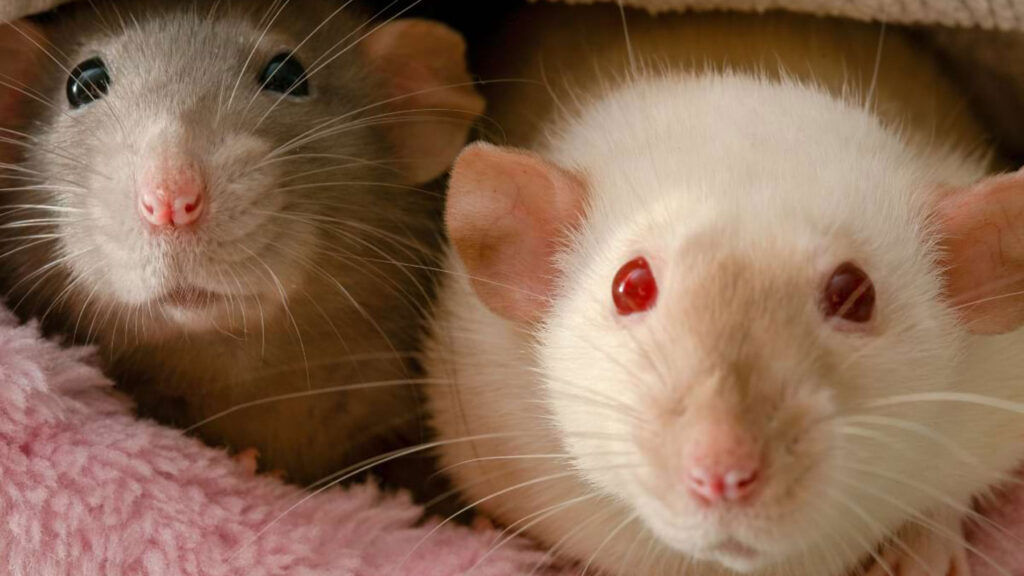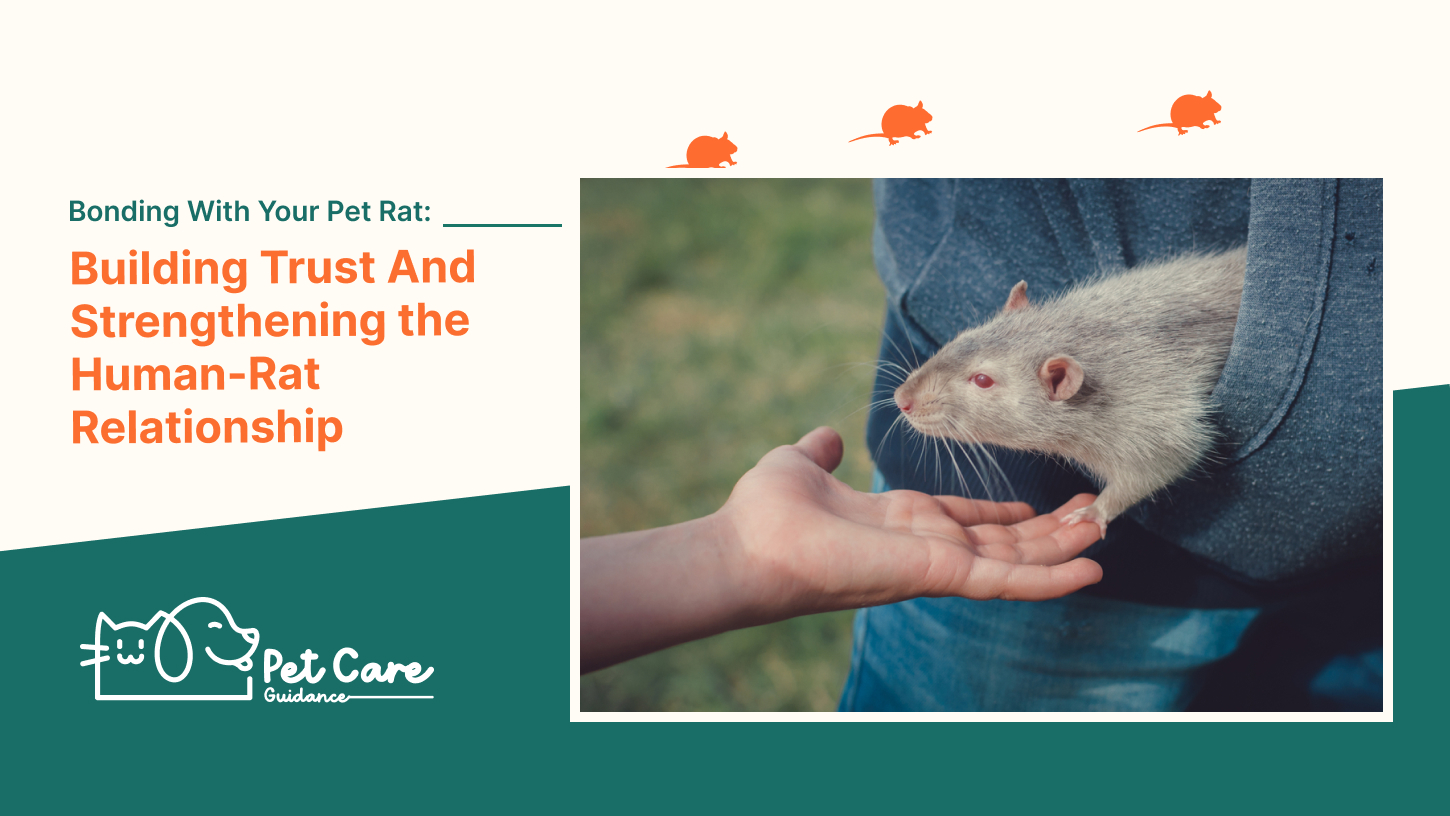Bonding with your pet rat and strengthening the human-rat relationship is possible through petting, speaking, playing with toys, and showing affection. Over time, your pet rat may feel comfortable perching on your shoulder or sitting in your lap, allowing you to build trust.
Additionally, rats are intelligent creatures that can form strong bonds with their human caretakers, so regular gentle contact and rewarding them with treats can help develop a bond. Building trust is the foundation for bonding with pets, as rats quickly identify trust just like humans.
Through these steps, you can establish a strong relationship with your pet rat, fulfilling their craving for companionship.
1. Understanding The Importance Of Bonding With Your Pet Rat
|
Bonding with your pet rat is essential for their well-being and the strength of your human-rat relationship. By building trust, you can create a deep connection and gain their affection. Physical contact plays a significant role in strengthening the bond, so make sure to pet and cuddle with your rat regularly. Allow them to explore your hands at their own pace and reward them with treats to associate your presence with positive experiences. |
|
Regular, gentle contact is crucial when starting the bonding process. Spend time talking to your rat and playing with them using toys. Over time, they will become more comfortable with sitting on your lap or perching on your shoulder. Show them affection by scratching behind their ears or giving them small massages. |
|
A strong human-rat bond has numerous benefits. Your rat will become attached to you and reciprocate the affection you show them. They may even groom you as a sign of their trust. Building trust with your pet rat is vital for their well-being and overall happiness. It is an ongoing process that requires patience and consistency, but the rewards of a strong bond are well worth the effort. |
2. Creating A Comfortable Environment For Your Pet Rat
|
Providing a suitable cage and living space for your pet rat: A cage with multiple levels and platforms can offer enrichment and exercise opportunities. Line the cage with bedding material that is safe for rats, such as shredded paper or aspen wood shavings. Keep the cage clean and hygienic by regularly removing soiled bedding and cleaning the cage with pet-safe cleaning products. The importance of cleanliness and hygiene for a happy rat: Enrichment activities to keep your pet rat engaged and stimulated: Rotate and introduce new toys periodically to prevent boredom. Additionally, consider providing foraging opportunities by hiding treats or food throughout the cage, encouraging your rat to use their natural instincts for food searching. Spend quality time interacting with your pet rat outside of their cage, allowing socialization and playtime. These enrichment activities will keep your pet rat engaged, and happy, and strengthen your bond with them. |

3. Building Trust And Establishing A Connection With Your Pet Rat
Building trust and establishing a connection with your pet rat requires patience and consistency in interacting with them. It is important to earn your pet rat’s trust through gentle handling and positive reinforcement.
Show your pet rat affection by petting and speaking to it, and engage in playtime using toys. Over time, your pet rat may become comfortable perching on your shoulder or sitting on your lap.
Bonding activities, such as playtime and grooming, are significant for strengthening the human-rat relationship. Engage in interactive play sessions with your rat and provide gentle grooming to build a deeper bond.
Remember that regular, gentle contact is essential to get your rat used to you and to develop a strong bond. Additionally, rewarding your pet rat with treats after handling can also be helpful in building trust.
4. Strengthening The Human-Rat Relationship Through Communication
Building a strong human-rat relationship requires effective communication. Understanding rat body language and vocalizations is key to strengthening this bond. Observing your pet rat’s behavior can give you insights into their mood and emotions.
Positive cues, such as gentle petting or offering treats, can help establish a communication system with your rat, reinforcing desired behaviours. By consistently using these positive cues, you can build trust and create a bond with your pet rat.
Treats and rewards also play a vital role in strengthening the human-rat relationship. Offering treats as a reward for good behavior can motivate your rat and encourage positive interactions. Remember, patience and consistency are essential in establishing effective communication and building a strong bond with your pet rat.
5. Overcoming Challenges In Building Trust With Your Pet Rat
Pet rats, like any other pet, require time and patience to build trust and strengthen the human-rat relationship. Overcoming various challenges that may arise during this process is crucial. Dealing with fear or aggression in your pet rat is one such challenge. It is important to identify the cause of their fear or aggression and address it accordingly. Providing a safe and comfortable environment, using positive reinforcement techniques, and gradually introducing them to new experiences can help alleviate fear or aggression.
In addition, if you are introducing new rats to an existing bond, it is essential to do so slowly and carefully. Introduce them in neutral territory, supervise their interactions, and provide separate spaces if needed. The introduction process may take time, but with patience and supervision, a harmonious group dynamic can be established.
However, if you find yourself struggling or facing difficulties, seeking professional help and guidance is always a good option. Rat behavior experts or veterinarians can provide valuable insights and techniques to help overcome challenges in building trust with your pet rat.
6. Maintaining A Strong And Trusting Relationship With Your Pet Rat
Regular interaction and engagement are crucial for nurturing the bond between you and your pet rat. Spend quality time with your rat by petting it, speaking to it, and playing with it using toys. Over time, your rat may become more comfortable perching on your shoulder or sitting in your lap. Continue to show affection by scratching it behind its ears or giving small massages. By doing so, you are building trust and strengthening your relationship with your pet rat.
Providing a balanced diet and proper healthcare are essential for your pet rat’s well-being. Ensure that they have access to a nutritious diet and fresh water at all times. Additionally, it’s important to schedule regular veterinary check-ups to prevent any health issues and address any concerns you may have.
A strong and trusting relationship with your pet rat can have long-term benefits. Not only will it enhance your overall bond, but it will also lead to a happier and healthier rat. Remember to be patient, consistent, and understanding as you continue to build a strong connection with your pet rat.
Frequently Asked Questions On Bonding With Your Pet Rat: Building Trust And Strengthening The Human-Rat Relationship
How Do You Get Your Pet Rat To Trust You?
To gain your pet rat’s trust, pet it, speak to it, and play with it using toys. With time, it may feel comfortable perching on your shoulder or sitting in your lap. Continue to show affection by scratching behind its ears or giving small massages.
How Do Rats Bond With Humans?
Rats bond with humans by becoming attached and showing affection. They love their families and easily bond with their human guardians. Interacting with them, speaking to them, and playing with them using toys can help build trust over time. Showing affection through gentle touches, scratching behind the ears, or giving small massages also helps strengthen the bond.
Do Pet Rats Form Bonds With Humans?
Pet rats can form strong bonds with humans through regular gentle contact and interaction. They enjoy being petted, scratched behind the ears, and even groom their human companions. Building trust over time is important for developing a bond with pet rats.
How Do You Know If Your Rat Trusts You?
To know if your rat trusts you, pet, talk, and play with them using toys. Gradually, they may feel comfortable perching on your shoulder or sitting on your lap. Show affection by scratching behind their ears or giving small massages.
Regular gentle contact helps build a bond.
Conclusion
Building a strong bond with your pet rat is crucial in strengthening the human-rat relationship. By petting, speaking to, and playing with your rat, you can gradually earn its trust and help it become comfortable with you. Physical contact, such as scratching behind the ears or giving gentle massages, can further enhance the bond.
Remember, building trust takes time and patience, but the rewards of a close and loving relationship with your pet rat are worth it.


